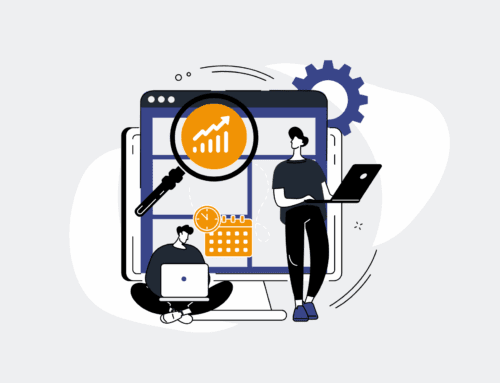The Synergistic Relationship: AI, Recruiters, and the Future of Talent Acquisition
The conversation around Artificial Intelligence in talent acquisition often veers towards a binary choice: human or machine. This oversimplification misses the profound opportunity for synergy. At 4Spot Consulting, we see a future where AI doesn’t replace the astute recruiter, but rather elevates their capabilities, transforming talent acquisition from a transactional process into a strategic imperative powered by both human intuition and algorithmic precision. The true power lies in understanding how these two forces can work in tandem to create a more efficient, equitable, and ultimately, more human hiring experience.
Beyond Automation: AI as a Recruiter’s Co-Pilot
Historically, recruiters have been burdened by an immense volume of administrative tasks: sifting through hundreds of resumes, scheduling interviews, sending follow-up emails, and managing complex applicant tracking systems. These tasks, while necessary, often detract from the strategic, high-value activities that truly differentiate an organization’s talent strategy. This is where AI steps in, not as a replacement, but as an indispensable co-pilot. Imagine a world where AI handles the initial screening, flags qualified candidates based on objective criteria, identifies potential biases in job descriptions, and even personalizes initial outreach at scale.
This isn’t about removing the human element; it’s about refining it. By offloading repetitive, time-consuming tasks to AI, recruiters are liberated to focus on what they do best: building relationships, assessing cultural fit, conducting nuanced interviews, negotiating offers, and acting as strategic partners to hiring managers. This shift allows for a deeper engagement with top-tier candidates, fostering a more positive candidate experience and ultimately leading to better hires that align more closely with organizational values and long-term goals. We’ve seen firsthand how automating these processes can save businesses critical hours, freeing up high-value employees to focus on strategic initiatives rather than manual drudgery.
Leveraging Data Insights for Strategic Advantage
One of AI’s most potent contributions to talent acquisition is its ability to process and interpret vast datasets far beyond human capacity. AI algorithms can analyze historical hiring data, market trends, and even behavioral patterns to predict which candidates are most likely to succeed in a given role and stay with the company long-term. This predictive analytics capability transforms recruitment from a reactive process into a proactive, data-driven strategy. Recruiters can gain insights into the most effective sourcing channels, optimize job descriptions for wider reach and diversity, and even identify skill gaps within their current workforce before they become critical.
This level of insight empowers recruiters to become true talent strategists, equipped with actionable intelligence to guide their decisions. Rather than relying solely on intuition or anecdotal evidence, they can present data-backed recommendations to hiring managers, justifying their approach and demonstrating clear ROI. This elevates the recruiter’s role within the organization, positioning them as essential contributors to business growth and success. Our OpsMap™ strategic audit often uncovers how current data silos prevent such insights, and our OpsBuild™ framework implements systems to unify and leverage this valuable information.
The Evolving Role of the Recruiter: From Gatekeeper to Cultivator
As AI handles the heavy lifting of initial candidate identification and administrative tasks, the recruiter’s role fundamentally shifts. No longer mere gatekeepers sifting through a deluge of applications, they evolve into cultivators of talent pipelines, brand ambassadors, and expert advisors. Their focus turns to understanding the subtle nuances of human interaction, empathy, and organizational culture – areas where AI, despite its advancements, still cannot replicate genuine human connection.
This means spending more time on deep candidate engagement, providing personalized feedback, and nurturing relationships with potential hires, even those who aren’t an immediate fit. It involves delving into diverse candidate pools, ensuring that the human touch is applied fairly and equitably, and championing the organization’s values. The future recruiter will be a master of emotional intelligence, cultural alignment, and strategic influence, guiding both candidates and hiring managers through a complex landscape. They will ensure that the efficiency gained through AI translates into a more human, inclusive, and effective hiring process, ultimately reducing human error and boosting scalability.
Building a Future Where Humans and AI Thrive Together
The synergistic relationship between AI and recruiters is not merely a theoretical concept; it’s a practical, actionable strategy for any organization serious about modernizing its talent acquisition efforts. By embracing AI, companies can streamline operations, gain unprecedented insights, and empower their recruitment teams to focus on the high-value, human-centric aspects of their work. This partnership leads to faster hiring cycles, reduced costs, improved candidate quality, and a more robust, resilient workforce. The future of talent acquisition is not about AI replacing humans, but about AI enhancing human capabilities, making recruiters more strategic, more impactful, and ultimately, more human in their approach.
If you would like to read more, we recommend this article: The Strategic Imperative of AI in Modern HR and Recruiting: Navigating the Future of Talent Acquisition and Management








